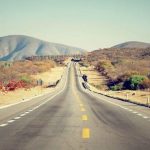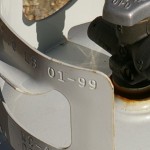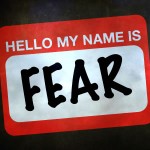By RSOPerator
There are a number of things I’ve often found were missing when perusing through our friends’ 72 hour kits. While some of these may seem a little obscure, in all reality every item I’ll be discussing here would be quite useful in the right circumstance.
1. Dental floss: It’s important to keep your teeth and gums as healthy as possible especially when you don’t have immediate access to a dental professional. Remember, an ounce of prevention is worth a pound of cure.
2. Batteries: What are you going to resort to when the batteries die in your flashlight or your handheld radio? You will want to have a supply of back-up batteries in your 72 hour kit to be sure you can keep your most useful electronic gadgets, survival tools and digital optics up and running.
3. Tarpaulin: One of the most sought after item that was in very short supply during the Haitian earthquake was a basic polymer tarp. A tarp is shelter from both the sun and precipitation, and can be utilized as a tool to catch rain water for consumption. They can also be used to cover a hole in a roof or as a makeshift fix for a broken window. With the widespread destruction that occurred in Haiti, these quickly became a form of emergency currency and were extremely hard to come by.
4. Pain Reliever: There is truly one thing worse than dealing with a disaster situation, and that is dealing with it while enduring the effects of a screaming head or back ache. Be sure to pack some of your favorite over-the-counter pain medication.
5. Underwear: Pack a few extra pair of clean underwear for each family member in a plastic press-and-seal bag and drop it into your 72 hour kit. When you find yourself separated from your bedroom closet for whatever reason, at some point, you are likely going to be very glad you had access to one or more pair of clean and dry underwear.
6. Toilet paper: Sure, you can just use leaves, but even a partial roll of TP is very light to carry, takes up little space even in a press-and-seal plastic bag, and it sure beats old dirty leaves.
7. Pen & Paper: This is an all too often forgotten addition to your 72 hour kit. You never know when you will need to jot down an address, phone number, a list of instructions, or who knows what else. Be sure you have your paper packed into something waterproof and the pen you choose is reliable.
8. Local maps: Fancy GPS devices are all the rage, but what if the unit becomes damaged, or the batteries die and you forgot to back extra (see above)? It’s wise to have a few maps of the local area packed into your 72 hour kit so you can navigate the land around you in old-school style. Also, it’s of great importance you know how to read a map and correctly navigate using a map and compass. To learn more about this particular skill set, you can read and study U.S. Army Field Manual 3-25.26 – Map Reading and Land Navigation.
9. Antiperspirant: It’s not just for arm pit stink; another handy use for antiperspirant is to help prevent your feet from becoming overly damp with perspiration. Simply covering your feet in product will help to keep your socks dry even in heavy boots.
10. Razor: Body and facial hair allow bacteria and resulting odors to stay on your person. Generally, the more effort you put into keeping yourself neat and clean, the less chances you have to acquire bacteria related skin conditions and to carry and transmit parasites.







